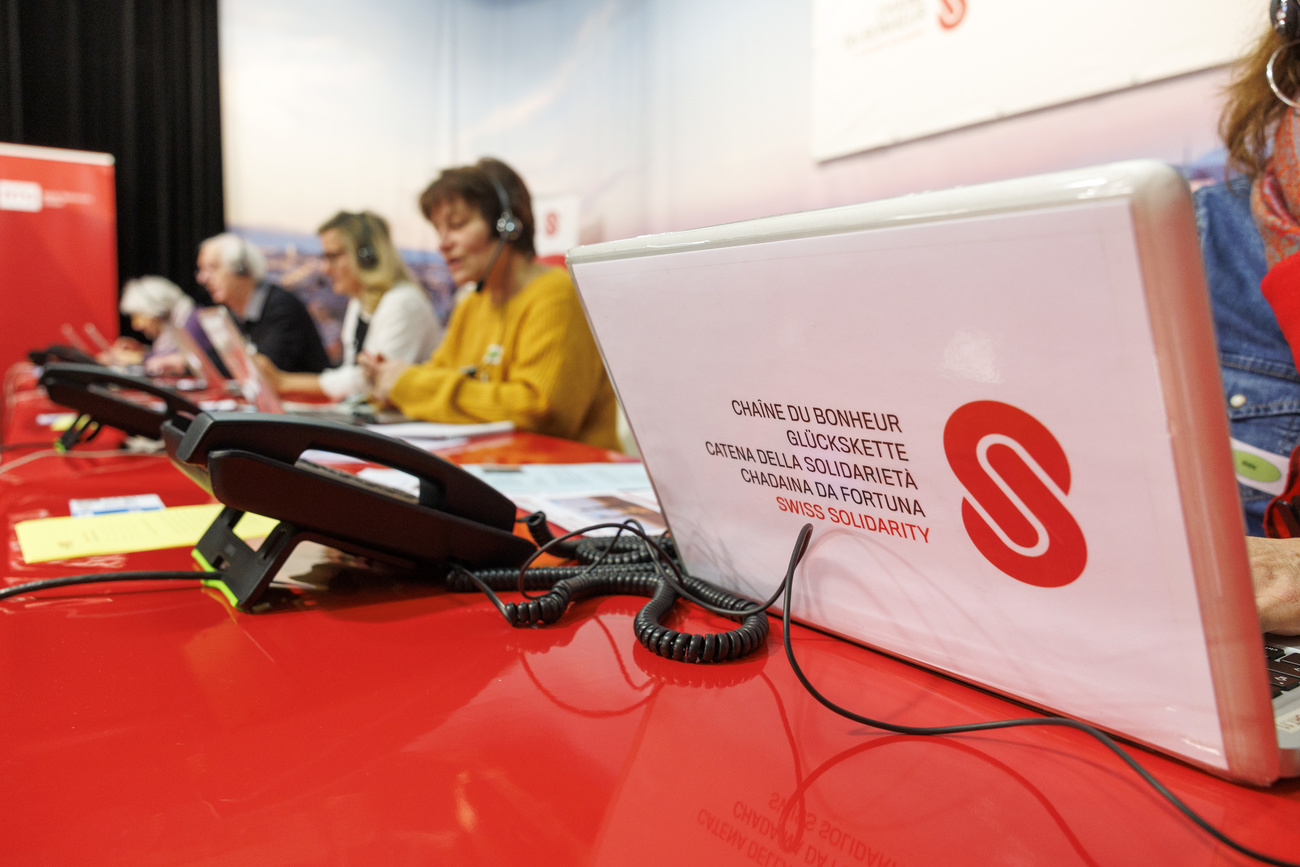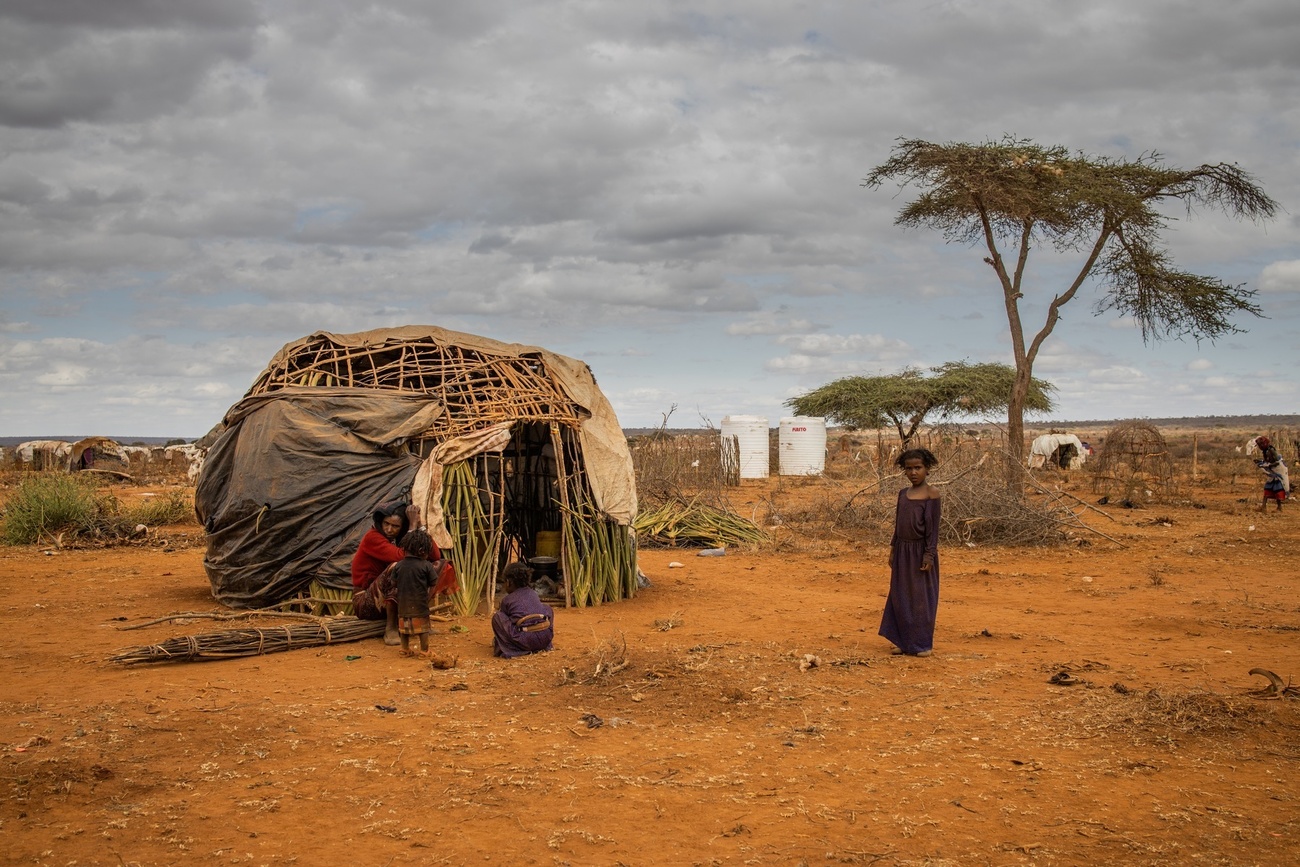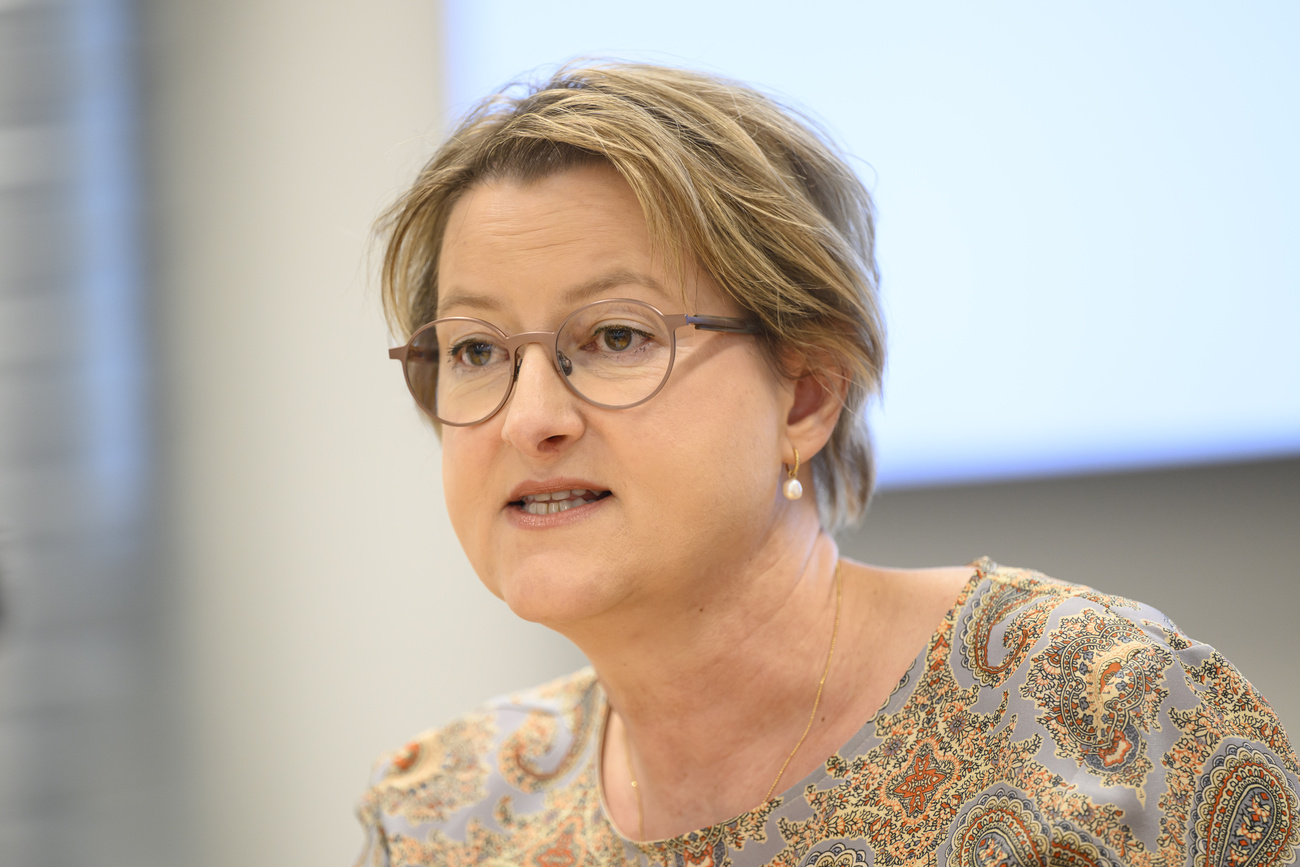
Swiss Solidarity raises over CHF7 million for Horn of Africa

Swiss Solidarity, the humanitarian arm of the Swiss Broadcasting Corporation, received donations of more than CHF7 million ($7.4 million) on a nationwide collection day for victims of the food crisis in East Africa.
The money will be used to support projects by partner organisations in the region including Caritas Switzerland, Helvetas, and Save the Children Switzerland.
The priority is to provide emergency aid in the form of cash assistance, water and food as well as health services to countries in the Horn of Africa – Kenya, Somalia and Ethiopia – which are experiencing one of the worst droughts in over 40 years. More than 36 million people are suffering shortages of food and water, and almost nine million farm animals have died due to a lack of water. Soaring food prices, triggered in part by the war in Ukraine, are exacerbating the situation.

More
Switzerland urged not to forget the food crisis in East Africa
The national collection day, which was supported by more than 280 volunteers, took place on November 23 from 7am to 11pm. However, donations are still being received online and at post offices, according to a Swiss Solidarity spokesperson.
Swiss Solidarity had opened a donation account in April to support victims of the drought in the region, raising CHF1.8 million for an emergency relief fund.
Since its foundation, Swiss Solidarity, the humanitarian arm of the Swiss Broadcasting Corporation, SWI swissinfo.ch’s parent company, has organised more than 250 fund-raising events and raised CHF1.7 billion in donations. This makes it Switzerland’s largest donor of humanitarian aid.

In compliance with the JTI standards
More: SWI swissinfo.ch certified by the Journalism Trust Initiative






























You can find an overview of ongoing debates with our journalists here . Please join us!
If you want to start a conversation about a topic raised in this article or want to report factual errors, email us at english@swissinfo.ch.